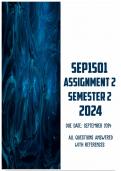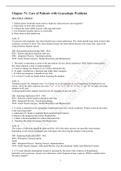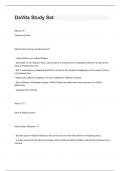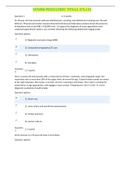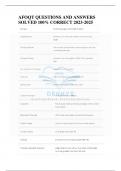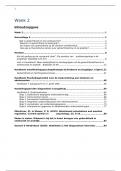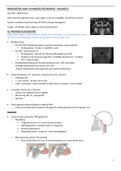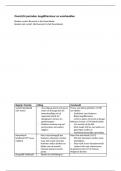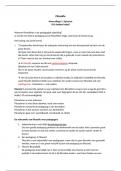Tentamen (uitwerkingen)
SEP1501 Assignment 2 Semester 2 2024 | Due September 2024
- Vak
- Instelling
- Boek
SEP1501 Assignment 2 Semester 2 2024 | Due September 2024. All questions answered with references. SECTION A QUESTION 1 Briefly explain when a security official can rely on “private defense”. Provide an example in support of your answer. [5] QUESTION 2 Name and describe the different el...
[Meer zien]
